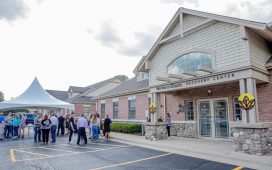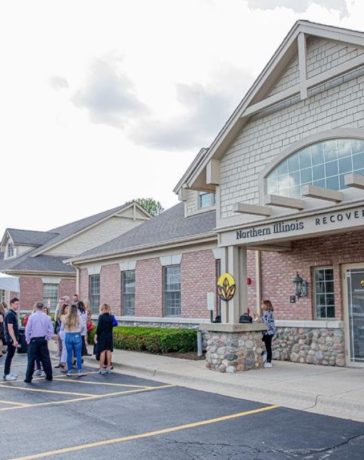Dental emergencies don’t wait for a convenient time to strike. Whether it’s a knocked-out tooth during a sports game at Burley High, a sudden toothache on a weekend camping trip, or a cracked filling at work, urgent dental issues can happen when you least expect them.
Knowing how to respond in those critical first moments can make a major difference—not just in reducing pain, but also in saving your tooth and preventing further damage. If you’re in Burley and experiencing a dental emergency, here’s what to do before you reach the dentist.
1. Stay Calm and Assess the Situation
The most important step in any emergency is to stay calm. Dental problems can be alarming, especially if there’s bleeding, swelling, or sharp pain, but panicking will only make it harder to think clearly.
Ask yourself:
- Is the pain sudden or has it been building?
- Is there swelling, bleeding, or visible damage?
- Has a tooth been knocked out or cracked?
- Are you able to eat, drink, or talk without severe discomfort?
Once you have a clear picture of the issue, contact your Burley dentist immediately. Many local dental offices offer same-day emergency appointments or will refer you to an urgent care provider if needed.
2. Knocked-Out Tooth? Time Is Critical
If a permanent tooth has been knocked out (also called an avulsed tooth), time is of the essence. You have the best chance of saving the tooth if it’s treated within 30 minutes to an hour.
Here’s what to do:
- Pick up the tooth by the crown (the top part), not the root.
- Do not scrub or rinse the tooth with soap.
- Gently rinse it with milk or saline if dirty, but do not dry it.
- If possible, reinsert the tooth into the socket and hold it in place with a clean cloth or gauze.
- If reinsertion isn’t possible, place it in a small container of milk or inside your cheek (if the patient is old enough not to swallow it).
Then, get to your Burley dentist or the nearest emergency dental provider immediately.
3. Severe Toothache? Try This First
Toothaches can be incredibly painful and may indicate anything from an abscess to a cracked tooth or deep cavity. If the pain is sharp, throbbing, or radiates to the jaw or ear, don’t ignore it.
Steps to take:
- Rinse your mouth with warm saltwater to clean the area and reduce inflammation.
- Use dental floss to gently remove any food stuck between teeth.
- Apply a cold compress to the outside of your cheek to reduce swelling.
- Take over-the-counter pain relievers like ibuprofen—but never place aspirin directly on the gums or tooth (this can cause burns).
- Avoid very hot, cold, or sweet foods until you see the dentist.
A severe toothache is a sign that something needs attention. The sooner you call, the better your outcome will be.
4. Cracked or Broken Tooth? Save the Pieces
A cracked or chipped tooth can range from mild to serious, depending on the size and depth of the break. Even if it’s not painful at first, it can quickly become worse if not treated.
Here’s what to do:
- Rinse your mouth with warm water.
- If there’s bleeding, apply gentle pressure with gauze or a clean cloth.
- Use a cold compress to reduce swelling.
- If you find the broken piece, bring it with you to the dental office in a container of milk or saline.
Until your appointment, avoid chewing on that side of your mouth, and stick to soft foods.
5. Swelling or Abscess? Don’t Wait It Out
If you notice a painful swelling, pimple-like bump, or pus near a tooth or on your gums, you may have an abscess—a serious infection that can spread if left untreated.
Symptoms may include:
- Fever
- Swollen jaw or neck glands
- Persistent bad taste in your mouth
- Pain that worsens when lying down
What to do:
- Rinse gently with warm saltwater.
- Do not try to pop or drain the abscess yourself.
- Apply a cold compress for swelling.
- Take pain relievers as directed, and seek dental care as soon as possible.
In rare cases, if swelling begins to affect breathing or swallowing, go to the nearest ER immediately.
6. Know Where to Go for Emergency Dental Care in Burley
The good news? Many dental practices in Burley offer same-day appointments for urgent needs. If you’re not sure whether your issue qualifies as an emergency, call your dentist anyway—they’ll let you know how serious it is and what to do next.
Some emergencies, like trauma from a fall or accident, may also require a trip to the ER before seeing a dentist. When in doubt, play it safe.
Conclusion: Be Prepared Before an Emergency Strikes
Dental emergencies are stressful, but being prepared can make all the difference. Whether it’s a child’s sports injury or an adult’s sudden toothache, knowing what to do in those first few minutes can reduce pain, protect your teeth, and possibly save you from long-term damage.
Keep your dentist’s number saved in your phone, know the location of your nearest dental office, and remember—Burley has a strong network of dental professionals ready to help when you need it most. We recommend Burley Dentist.















